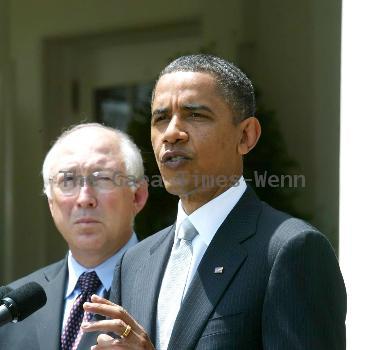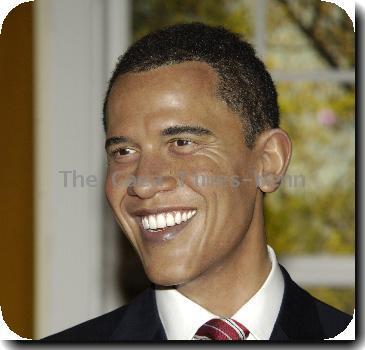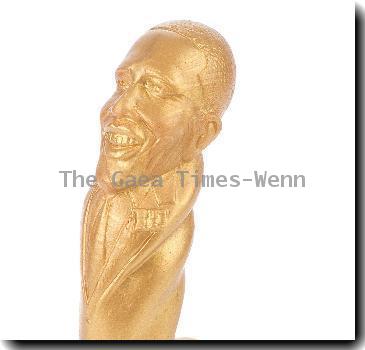Primaries test tea party strength in Kentucky, incumbent strength elsewhere
By David Espo, APTuesday, May 18, 2010
Four states hold primaries, one House election
WASHINGTON — President Barack Obama is not on the ballot in this week’s primaries, nor is Sen. Mitch McConnell of Kentucky, the Republican Senate leader.
But both have a stake in intensely competitive Senate races in three states, contests testing the strength of the tea party among Kentucky Republicans and the durability of incumbent Democratic Sens. Blanche Lincoln in Arkansas and Arlen Specter in Pennsylvania.
In a fourth race of national significance, Republican Tim Burns and Democrat Mark Critz battled to fill out the term of the late Democratic Rep. John Murtha in a congressional district in southwestern Pennsylvania. Both political parties reported spending roughly $1 million to sway the race, turning it into a laboratory for the fall campaign, when all 435 House seats will be on the ballot.
Oregon voters also faced a deadline for returning ballots in a statewide mail-in vote that began more than two weeks ago.
On the eve of the busiest primary night of the year so far, White House spokesman Robert Gibbs said Monday that Obama was following the races, but “not that closely.”
“We have supported incumbent Democratic senators and we’ve done a lot on behalf of each campaign,” he added, referring to Lincoln and Specter.
Gibbs said Obama’s involvement had not become an issue in the primaries.
Nor was it clear what impact his involvement would mean for the incumbents, under extraordinary political pressure in a year of well-documented voter dissatisfaction with Washington.
McConnell made no attempt to minimize his own interest in the Senate primary in Kentucky after making a late television commercial on behalf of Secretary of State Trey Grayson, battling tea party-backed Rand Paul.
A spokesman, Don Stewart, said McConnell was watching the race in his home state closely, and added he doubted White House claims that Obama wasn’t equally interested. “That sure would be a surprise given that he has two incumbents in close races,” he said.
While Grayson had support from the state’s Republican establishment, Paul countered with backing from former Alaska Gov. Sarah Palin, retiring Sen. Jim Bunning and conservative Sen. Jim DeMint of South Carolina. DeMint has interceded in several primaries in hopes of pushing his party to the right, a decision that some Republicans say may portend a move for greater influence inside the Republican leadership led by McConnell.
Among Democrats, Kentucky Attorney Gen. Jack Conway collided with Lt. Gov. Daniel Mongiardo for the right to take on the Republican winner. Mongiardo lost a close race to Bunning six years ago.
Specter, 80 and a party-switcher, struggled for political survival in a primary with Rep. Joe Sestak, who gained late momentum with a television ad. It showed his rival saying only a year ago that he quit the Republican Party to win a new term.
Former Rep. Pat Toomey campaigned as the prohibitive front-runner for the Republican nomination, six years after losing to Specter in a GOP primary.
In Arkansas, Lincoln sought renomination against Lt. Gov. Bill Halter. She emphasized her independence from party. Halter had the support of several unions that spent heavily in hopes of punishing the incumbent for votes on health care, trade and legislation to make it easier to organize workers.
The presence of a third contender on the ballot, D.C. Morrison, raised the possibility that Lincoln might be forced into a politically debilitating runoff on June 8.
Rep. John Boozman was the acknowledged Republican front-runner for the Senate nomination for a seat the GOP hopes to win in the fall.
Oregon’s mail-in primary produced little if any of the drama that was on display elsewhere.
Sen. Ron Wyden sought the Democratic nomination to a third full term. Seven Republicans vied for the right to oppose him in the fall.
Former Democratic Gov. John Kitzhaber campaigned for his party’s nomination for a return to office, and nine Republicans competed for the nomination to run against him.
In Pennsylvania’s gubernatorial primary, four Democrats and two Republicans vied to advance to the fall election. Gov. Ed Rendell, a two-term Democrat, was barred from seeking re-election.
Tags: Arlen specter, Barack Obama, Campaigns, House Elections, Kentucky, North America, Pennsylvania, Primary Elections, Sarah palin, State Elections, United States, Washington



